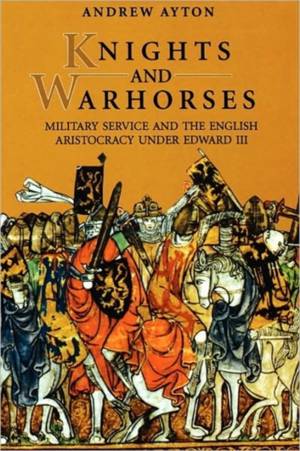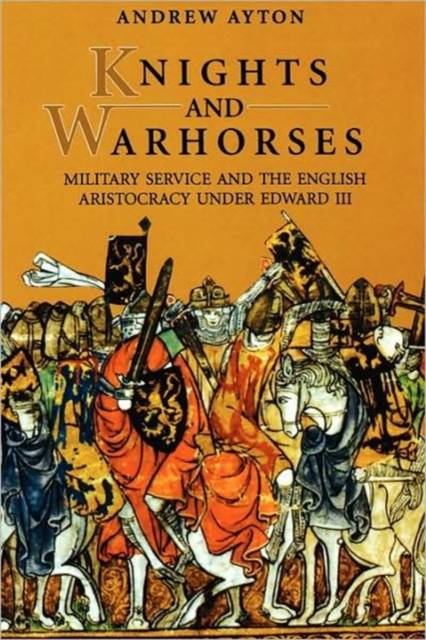
- Afhalen na 1 uur in een winkel met voorraad
- Gratis thuislevering in België vanaf € 30
- Ruim aanbod met 7 miljoen producten
- Afhalen na 1 uur in een winkel met voorraad
- Gratis thuislevering in België vanaf € 30
- Ruim aanbod met 7 miljoen producten
Zoeken
Knights and Warhorses
Military Service and the English Aristocracy Under Edward III
Andrew Ayton
Paperback | Engels
€ 59,95
+ 119 punten
Omschrijving
The mounted, armoured knight is one of the most potent symbols of medieval civilisation; indeed, for much of the middle ages the armoured warhorse was what defined a man as a member of the military class. However, despite the status of the knightly warrior in medieval society, the military service of the later medieval English aristocracy remains an unaccountably neglected subject, and the warhorse itself has never attracted a major study based upon archival sources. This book seeks to open up new fields of research: it focuses on the horse inventories, documents which offer detailed lists of men-at-arms and their appraised warhorses, the valuation of which is a measure of its owner's social and military status. Dr Ayton is primarily concerned with the inventories and related records for Edward III's reign, a period which witnessed significant changes in the organisation of the English fighting machine. The documents produced during this period of `military revolution' cast valuable light on the character and attitudes of the aristocratic military community at a time when its traditional role was in the course of re-evaluation.Dr ANDREW AYTON is senior lecturer in history at the University of Hull.
Specificaties
Betrokkenen
- Auteur(s):
- Uitgeverij:
Inhoud
- Aantal bladzijden:
- 320
- Taal:
- Engels
Eigenschappen
- Productcode (EAN):
- 9780851157399
- Verschijningsdatum:
- 10/11/1994
- Uitvoering:
- Paperback
- Formaat:
- Trade paperback (VS)
- Afmetingen:
- 157 mm x 234 mm
- Gewicht:
- 553 g

Alleen bij Standaard Boekhandel
+ 119 punten op je klantenkaart van Standaard Boekhandel
Beoordelingen
We publiceren alleen reviews die voldoen aan de voorwaarden voor reviews. Bekijk onze voorwaarden voor reviews.








